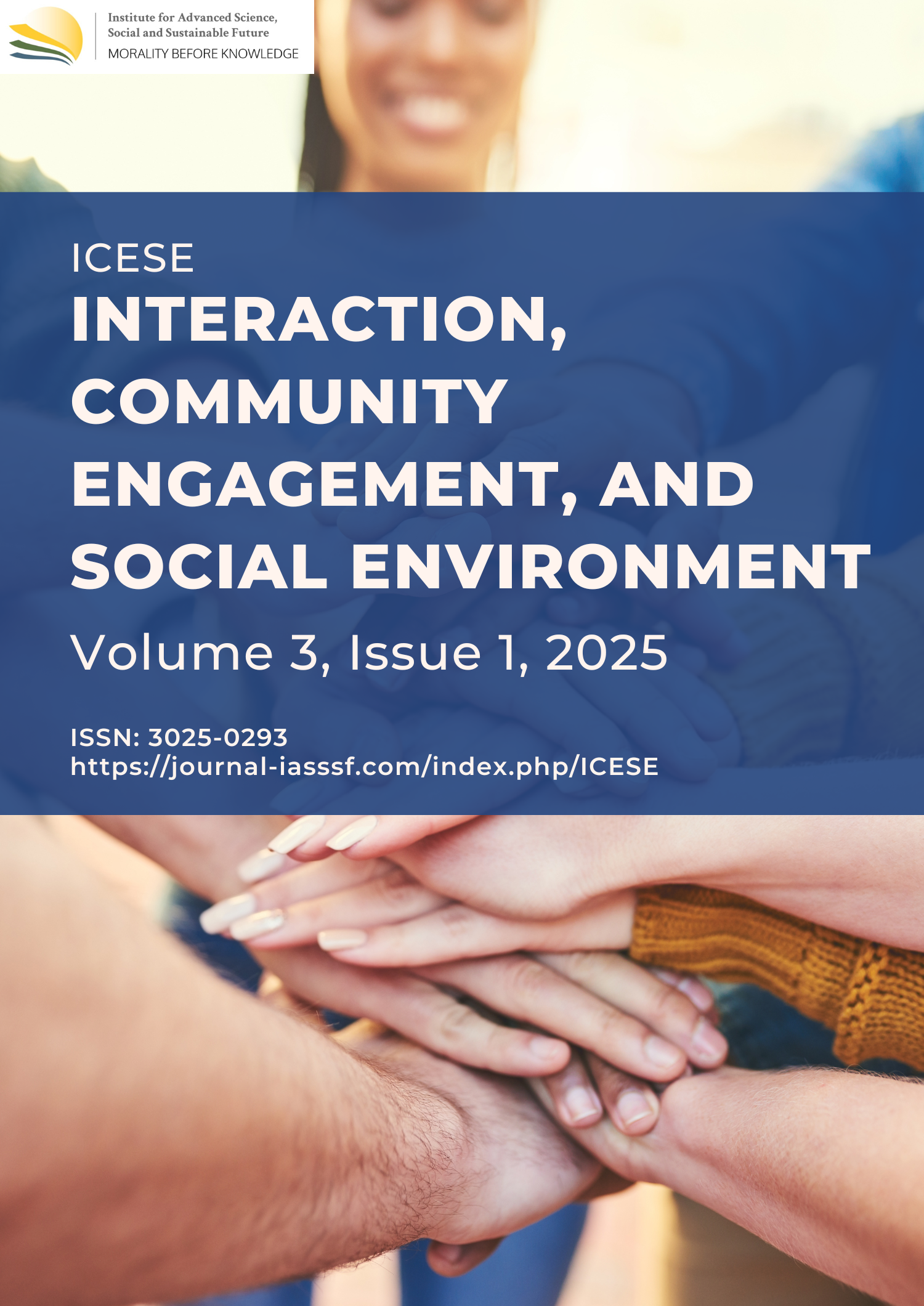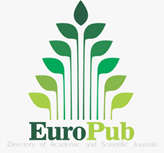A comprehensive analysis of resilience processes in three MSMEs responding to accelerated digital transformation and operational challenges during the COVID-19 pandemic
DOI:
https://doi.org/10.61511/icese.v3i1.2025.1893Keywords:
COVID-19 pandemic, MSME adaptation, MSME resilience, social functioning, social supportAbstract
Background: This study focuses on the resilience of Micro, Small, and Medium Enterprises (MSMEs) in Tanjung Duren Utara, West Jakarta, in facing the challenges of the COVID-19 pandemic and the acceleration of digitalization. Methods: This study employs a qualitative and descriptive approach, focusing on three local MSMEs: Bakso Malang, Ayam Tulang Lunak 3 Saudara Cemara, and Mie Ayam Barokah. Through this approach, the research aims to identify and analyze the resilience processes demonstrated by MSMEs during the pandemic. Findings: The findings reveal that MSMEs undergo four stages of resilience: surrender, survival, recovery, and rapid growth. These stages involve adjustments to economic and psychological pressures, operational efficiency strategies, utilization of online delivery services, innovations in online marketing and customer service, and adaptation to digital technology. These findings are significant in highlighting how social support, personal strength, and the ability to act contribute to the success of MSMEs in facing the pandemic. Conclusion: Given the strategic role of MSMEs in the national economy, particularly in terms of labor absorption and contribution to the Gross Domestic Product, an analysis of their adaptation in this crisis situation is essential. Novelty/Originality of this article: The study underscores the importance of adaptation, innovation, and community support in building business resilience amidst uncertainty and challenges, demonstrating effective social functioning during the pandemic and avoiding social maladaptation.
References
Achlis, A. (1992). Praktek Pekerjaan Sosial I. STKS.
Adi, F. (2014). Pengantar Kesejahteraan Sosial. Rafika Aditama. Adi, I. R. (2015). Kesejahteraan Sosial. PT Raja Grafindo Persada.
Aminy, A., & Fithriasari, K. (2020). Analisis dampak COVID-19 bagi UMKM di Jawa Timur. In Seminar Nasional Official Statistics, 2020(1), 15-22. https://doi.org/10.34123/semnasoffstat.v2020i1.646
Apulu, I., & Latham, A. (2011). Drivers for information and communication technology adoption: A case study of Nigerian small and medium sized enterprises. International Journal of Business and Management, 6(5), 51. https://doi.org/10.5539/ijbm.v6n5p51
Bahtiar, R. A., & Saragih, J. P. (2020). Dampak Covid-19 terhadap perlambatan ekonomi sektor umkm. Jurnal Bidang Ekonomi Dan Kebijakan Publik, 7(6), 19-24.
Brennen, J. S., & Kreiss, D. (2016). Digitalization. The international encyclopedia of communication theory and philosophy, 1-11. https://doi.org/10.1002/9781118766804.wbiect111
Bryman, A. (2012). Social Research Methods (4th ed). Oxford University Press Inc.
Coulson, R. (2006). Resilience and Self-Talk in University Students. University of Calgary. https://doi.org/10.11575/PRISM/1047
Creswell, J. W., & Creswell, J. D. (2018). Research Design: Qualitative, Quantitative, and Mixed Methods Approaches (Fifth Edition). SAGE Publications.
Danial, D., & Wasriah, W. (2009). Metode Penulisan Karya Ilmiah. Laboratorium Pendidikan Kewarganegaraan UPI.
Dewi, R. W. K., Yuliati, Y., & Kustanti, A. (2023). Resiliensi Pelaku UMKM Tahu dalam Menghadapi Dampak Pandemi Covid-19 di Kabupaten Kediri (Studi Kasus Pada Desa Toyoresmi, Kecamatan Ngasem, Kabupaten Kediri). Jurnal Ekonomi Pertanian dan Agribisnis, 7(2), 769-782. https://doi.org/10.21776/ub.jepa.2023.007.02.29
Friedlander, W. A. (1961). Pengantar Kesejahteraan Sosial. Gema Insani Press.
Grotberg, E. H. (1996). The international resilience research project. Civitan International Research Center, University of Alabama at Birmingham. https://eric.ed.gov/?id=ED419584
Helmi, A., & Satria, A. (2012). Strategi Adaptasi Nelayan terhadap Perubahan Ekologis.
Makara, Sosial Humaniora, 16(1). https://doi.org/10.7454/mssh.v16i1.1494 Hendriani, W. (2018). Resiliensi Psikologis: Sebuah Pengantar. Prenadamedia Group.
Huda, M. (2009). Pekerjaan Sosial dan Kesejahteraan Sosial (Sebuah Pengantar). Pustaka Pelajar.
Lampe, M. (1989). Strategi-strategi adaptif yang digunakan nelayan Madura dalam kehidupan ekonomi perikanan lautnya. Universitas Indonesia.
Machmud, R. (2008). Manajemen mutu pelayanan kesehatan. Jurnal Kesehatan Masyarakat Andalas, 2(2), 186-190. https://doi.org/10.24893/jkma.v2i2.31
Miles, M. B., & Huberman, A. M. (1994). An Expanded Sourcebook: Qualitative Data Analysis. Sage Publications.
Neuman, W. (2014). Social Research Methods: Qualitative and Quantitative Approaches (Seventh Edition). Pearson Education Limited.
Puschmann, T., & Alt, R. (2016). Sharing economy. Business & information systems engineering, 58(1), 93-99. https://doi.org/10.1007/s12599-015-0420-2
Raharjo, S. T. (2017). Pengantar Pekerja Sosial. UNPAD Press.
Siporin, M. (1975). Introduction to Social Work Practice. MacMillan Pub Co. Soekanto, S. (2007). Sosiologi Suatu Pengantar. PT Raja Grafindo Persada. Soul, G. (1992). Pemikiran Para Pakar Ekonomi. Kanisius.
Suartana, I. W., Yasa, G. W., Setyari, N. P. W., & Purnamawati, I. G. A. (2020). Resiliensi bisnis badan usaha milik desa pada era pandemi: sebuah pendekatan studi kasus. Matrik: Jurnal Manajemen, Strategi Bisnis dan Kewirausahaan, 253. https://doi.org/10.24843/MATRIK:JMBK.2020.v14.i02.p09
Sugiyono, S. (2012). Metode Penelitian Kuantitatif, Kualitatif, dan R&D. Alfabeta. Sugiyono, S. (2018). Metode Penelitian Kuantitatif, Kualitatig, dan R&D. Alfabet.
Suharto, E. (2014). Membangun Masyarakat Memberdayakan Rakyat (Kajian Strategis Pembangunan Kesejahteraan Sosial & Pekerjaan Sosial). Refika Aditama.
Suheil, M., & Indrawati, I. (2017). Adaptasi Pedagang Pasca Kebakaran di Tempat Penampungan Sementara (TPS) Plaza Sukaramai Kota Pekanbaru. Riau University.
Sukirno, S. (2016). Makro Ekonomi Teori Pengantar. PT. Rajawali Pers.
Tapscott, D. (2013). Grown Up Digital yang Muda yang Mengubah Dunia. PT Gramedia Pustaka Utama.
Todaro, M. P., & Smith, S. C. (2006). Pembangunan Ekonomi, Jilid I (H. Munandar, Trans.; Edisi Kesembilan). Erlangga.
Werner, E. E., & Smith, R. S. (2001). Journeys from Childhood to Midlife: Risk, Resilience, and Recovery. Cornell University.
Wolin, S. J., & Wolin, S. (1994). The Resilient Self: How Survivors of Troubled Families Rise Above Adversity. Villard Books.
Downloads
Published
How to Cite
Issue
Section
Citation Check
License
Copyright (c) 2025 Teuku Muhamad Rizha, Sari Viciawati Machdum

This work is licensed under a Creative Commons Attribution 4.0 International License.















